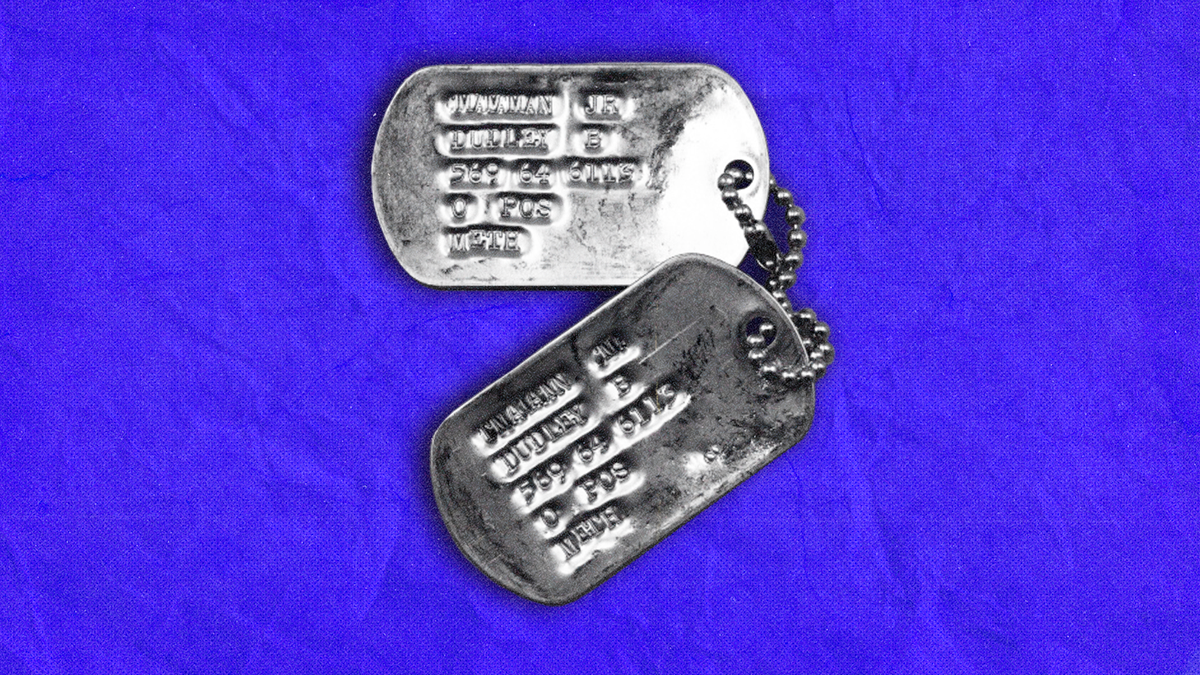A few days ago – while cleaning out a dresser drawer filled with some old pocket squares, a box of cufflinks, a bag of dead-battery watches, a wad of bills from Brazil, Russia, and Colombia, and a hollowed-out dried gourd filled with guitar picks – I came across something related to the news these days: my father’s US Army dog tags from the 1950s.
As a refugee from the various horrors that had befallen his home country of Czechoslovakia a decade earlier, my father chose to serve in the US Army, both as an act of gratitude for the US role in liberating Europe and as a way to root himself in his new home. For millions of other young men in those days, however, the army was compulsory – the draft was still in effect.
The draft, of course, lasted until the 1970s when it was scrapped as part of the national reckoning over America’s political and military failures in Vietnam.
Could it ever come back? Should it?
As it happens, a number of close US allies are again wrestling with the question of whether to reintroduce military conscription.
In Europe, countries spooked by Vladimir Putin’s appetite for empire and Donald Trump’s distaste for alliances are scrambling to shore up their armies. This year Latvia reinstated a draft, following similar moves in recent years by Sweden and Lithuania.
But it’s not just small nations along Russia’s prickly borders. Germany, which dropped its draft in 2011, is now mulling a return to compulsory service to address a shortfall in troops.
Meanwhile, in Israel, with the war in Gaza raging, there have been fresh calls to end the religion-based military service exemptions for Israel’s 1.2 million ultra-Orthodox Jews.
On the surface, these are debates about military preparedness and resources. But they are also about something deeper: the social contract between people and the state. If the government asks you to give up two years – or even to risk your life – under what circumstances would you say yes?
One might be: a good reason to fight. The Europeans worry that an expansionist Russia could eventually bring war to their borders. Top Russian generals spouting off about a “a wider European war” do nothing to reduce that anxiety. For the Latvians or Swedes or the Germans, there’s a clear and present enough danger.
Another might be: You generally trust your countrymen and your government. Sweden and Germany are both societies near the top of the list among OECD rankings of trust in government. Austria and Switzerland, which have proudly clung to their drafts and national service programs for decades – are too. Israel, for its part, may have a nasty and combative politics, but among Israeli Jews, social cohesion on national defense is famously strong.
All of this helps us understand why one important country is NOT having a conversation about a draft.
Less than 20% of Americans support the idea of bringing one back. That’s hardly surprising. The US is a deeply polarized place, where trust in the government is low. Its wars of choice, fought largely by marginalized communities, have (rightly) soured the public on foreign military adventurism.
It’s comical, in fact, to imagine what would happen if a president of either party announced a military draft: We can barely agree on who won the last election, let alone a solid reason to put our kids in combat boots.
But a draft of some kind might, paradoxically, be good for the US. For one thing, it would widen the circle of people directly affected by US foreign policy choices, which is no bad thing. One reason Iraq and Afghanistan became “forever wars” is that they were “working class” conflicts. The casualties were borne overwhelmingly by lower-income families, far from the centers of power.
A draft might also do something else that rarely happens in America these days: pull together people of different parties and incomes for a common, and in some ways extreme, shared experience.
Americans, in fact, seem to like that idea, at least if it doesn’t involve boot camp: Polls show that as many as two-thirds would support some form of mandatory national service – a kind of domestic Peace Corps.
It’s worth considering. It wouldn’t leave anyone with dog tags for their kids to find in a messy drawer decades later, but if there’s a kind of draft that can help to address America’s internal conflicts, wouldn't you be for it?.
Write to us with your thoughts on a draft in America! If you include your name and location, we might run your comment in an upcoming Daily.



















